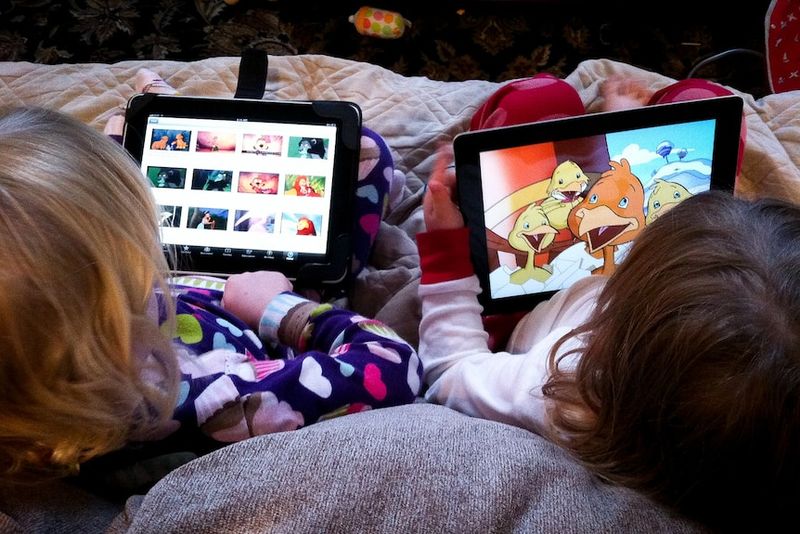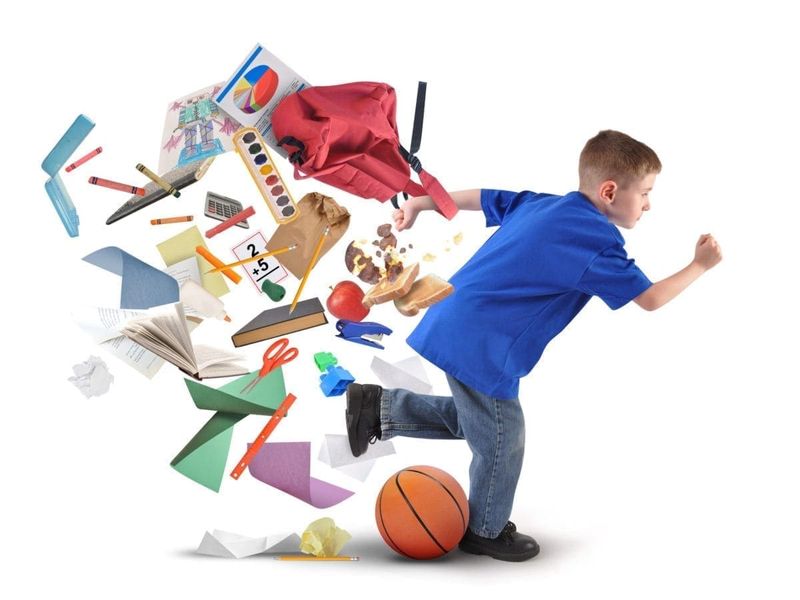If you’ve ever sat at a kitchen table past midnight, ranting to your sibling about something your parents did or didn’t do, you’re not alone.
Millennials have a long, weird list of things we carry—some that sting quietly, others that echo in every therapy session. We grew up at the edge of old-school parenting and the explosion of the internet, and it shows.
Let’s be honest—resentment isn’t always dramatic. Sometimes it’s just the ache of wishing someone had listened, or taught you how to file your taxes instead of making you hug weird relatives. So, yeah, some things still stick. Here’s the unfiltered list.
1. Lack of Financial Education
Nobody ever showed me how to handle money, but they did hand me a credit card in college. That’s how it started. You’d think parents who grew up with checkbooks and envelopes full of cash would pass down financial wisdom, but for a lot of us, the lesson was just “don’t spend too much”—whatever that meant.
When I got my first paycheck, I stared at the stub like it was in another language. Budgeting was a mystery. Saving? Only if I skipped coffee.
Now, I’m Googling how to avoid overdraft fees at two in the morning, wondering why my parents never mentioned Roth IRAs. Turns out, the basics matter. We needed more than vague warnings or shame about debt.
2. Pressure to Pursue Traditional Education Paths
Picture this: Every adult around you chanting “go to college, get a degree, secure your future” like it’s some kind of spell. There wasn’t space for other dreams—trade school felt like admitting defeat.
The pressure wasn’t mean, exactly. It just erased possibility. You could be an artist, a mechanic, or a coder—but you had to be a college grad first.
I felt like I’d fail if I didn’t follow the path they’d drawn. But the student loans? Those were mine alone. Sometimes I wish they’d asked what I wanted, instead of assuming what was best.
3. Inadequate Emotional Support
Your feelings weren’t facts. Sadness was a phase, anger was attitude, and worry was just “being a teenager.” Problems got swept under the rug, never named or faced. That’s what you learned every time you were told to calm down, toughen up, or stop making things dramatic. I remember desperately wanting to be understood—just once.
Instead, my sadness made adults uncomfortable. Anger got me punished. Vulnerability was embarrassing.
Years later, I still double-check my emotions before sharing. I flinch at the word “overreacting”, but still ask myself did I overreact? Should I keep quiet? All that longing for connection, when all I needed was a simple, “I hear you.”
4. Neglecting Mental Health
Nobody talked about depression, except as something that happened to “other” people. Anxiety was just being dramatic. Therapy? For “crazy” people, not us.
I wish someone had broken that silence. The family history of sadness, the panic attacks that ran in the bloodline—those things didn’t vanish just because we never named them.
Sometimes I wonder how different things might feel if mental health had been treated like a bruise instead of a secret. Now, I’m learning to put words to things. Naming anxiety, talking about depression—it’s awkward, but necessary. I wish those conversations had started a long time ago.
5. Overemphasis on Achievement
You’d think a shelf full of trophies would make a kid feel proud. Honestly, it just felt heavy.
If you didn’t get straight A’s, the room got quieter. If you won, then you were worth celebrating—until it was time for the next thing.
Sometimes, I wonder what would’ve happened if my parents had cared more about my happiness than my report card. I might not still feel like I have to earn love, or that failing means I’m not enough.
6. Lack of Autonomy
“Go give your aunt a hug.” How many times did I hear that before I realized I didn’t have a choice about my own body? Boundaries were for grownups—kids just did what they were told.
Voice an opinion? That was cute, until it was inconvenient. Dress yourself? Only if it looked the way they wanted.
No wonder so many of us now struggle to say no, or to trust our own instincts. Autonomy isn’t just a word you see in self-help books—it’s a muscle we never got to stretch.
7. Inconsistent Discipline
You never knew which parent you’d get when you broke a rule. Sometimes it was a lecture, other times the silent treatment, or maybe just being ignored altogether.
I learned early on to read the room, to tiptoe around moods. Consistency wasn’t guaranteed.
Instead of learning boundaries, I learned anxiety. Wondering if this time I’d be “grounded” or just forgotten. That unpredictability lingered longer than any punishment ever could.
8. Overprotectiveness
It’s wild to remember how much of my childhood felt safe—so safe I barely lived in it. My parents meant well, but protection felt like a cage.
Every scraped knee was a crisis. Every risk was a chance to fail, so better not try at all.
When I finally left home, I realized I wasn’t prepared for actual setbacks. Overprotectiveness taught me to fear mistakes more than embrace new experiences. Resilience isn’t built behind bubble wrap.
9. Expectativas irrealistas
Some families believed their way was the only way. Sit up straight, don’t talk back, work hard, and everything works out—except it doesn’t, not always.
I still remember the sting of “kids should be seen and not heard.” My opinions felt like noise, my dreams too big for their kitchen table.
Now I hear the echo whenever I doubt myself. Unrealistic expectations didn’t build confidence—they made it hard to trust that I could write my own rules.
10. Lack of Quality Time
Family time meant sharing space, not stories. Sure, we were all home, but everyone seemed miles apart.
Empty conversations filled the air—“How was your day?” “Fine.”—and that was it. No shared laughter, no real connection.
Looking back, I wish we’d made memories instead of just routines. Quality time isn’t about presence. It’s about investment and I’m still trying to figure out how to build that now.
11. Overindulgence with Technology
Screens made everything quieter at home. I got handed a device whenever things got tense, or just to keep me busy while adults worked or argued.
It felt like magic—until I realized I didn’t know how to talk to people face-to-face. Social skills take practice, but I practiced swiping instead.
Now, put me in a room with strangers, and I default to scrolling. Too much screen time wasn’t just numbing—it built a wall I’m still trying to climb.
12. Helicopter Parenting
There’s nothing like the feeling of someone always looking over your shoulder, ready to fix whatever you might mess up. My mom meant well, but her constant hovering left me doubting every choice I made.
She edited every assignment, double-checked my backpack, and called teachers if I got a B. Independence was a theory, not reality.
As an adult, making decisions still feels risky. I grew up believing mistakes were disasters, not lessons. Helicopter parenting built a net, but it also kept me from learning how to fall.
13. Prioritizing Work Over Family
My dad loved us, but work always came first. He said he was building a better future, but sometimes I just wanted him to watch my game.
Dinner was a rushed affair—phones on the table, eyes on emails. I learned to measure love in minutes, and there were never enough.
Now, I struggle to unplug. The hustle is always calling, but I wonder if it’s worth what it cost my family. Sometimes, presence is the real paycheck.
14. Over-Scheduling Activities
Weekends weren’t for resting—they were for recitals, games, and practices. My calendar was booked solid before I was old enough to tell time.
I learned to be busy, not balanced. Free time felt wrong, like I was missing out or falling behind.
As an adult, downtime makes me anxious. If I’m not “productive,” I feel guilty. I wish my parents had taught me how to rest, not just how to run.
15. Negligenciar os cuidados pessoais
She gave us everything, but left nothing for herself. My mom wore exhaustion like a badge—always tired, always last on her own list.
Self-care sounded selfish in our house. Rest was a luxury, not a necessity.
Now, I catch myself repeating those patterns. Especially since I got a kid of my own. Burnout feels normal. It took years to realize that taking care of yourself isn’t weakness. It’s survival. And still, I strugle to achieve it.
16. Relying on Instant Gratification
Gifts kept coming, but the excitement never lasted. Every wish granted right away—there was no waiting, no building anticipation.
I got used to quick fixes. If something broke, it got replaced. If I wanted something, I got it.
As an adult, patience feels foreign. Working for something, saving up, or holding out for a reward? Still learning. Instant gratification taught me to chase the next new thing, not to value what I have.

















